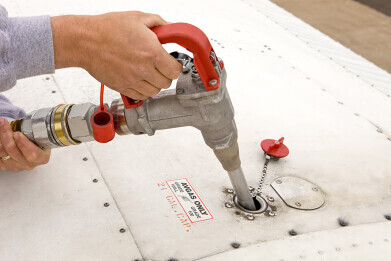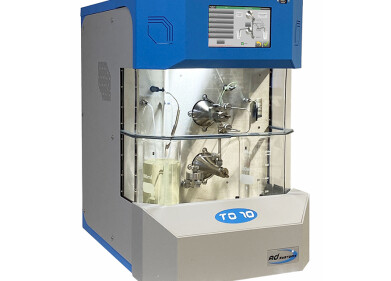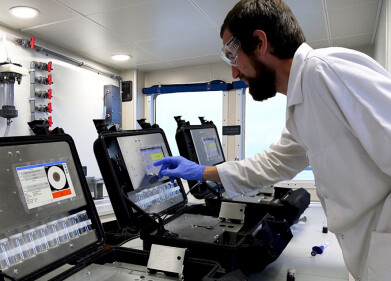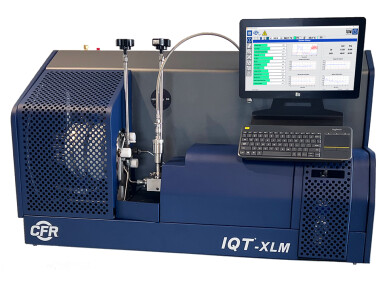Fuel analysis
Avgas supercharge testing and the use of a CFR engine provide a host of benefits for aviation fuel testing
May 17 2024
Aviation gasoline, or ‘Avgas’ is used to fuel power piston-engine aircraft, including small planes and helicopters. Avgas differs from other types of gasoline/petroleum, such as automotive gasoline, because it has a higher octane rating; it can therefore withstand higher pressures and temperatures in the engine without knocking or detonation. Knocking or detonation occurs when the fuel-air mixture within the cylinder ignites prematurely or unevenly; this results in power loss, reduced efficiency and engine damage. It is therefore extremely important to make sure that Avgas has the right octane rating for all desired engine and operating conditions.
ASTM’s D909 Standard Test Method for Knock Characteristics of Aviation Gasolines by the Supercharge Method is a globally accepted method for measuring Avgas and aviation gasoline blending component octane ratings. This method simulates the tough conditions of high-performance engines operating at high altitudes, temperatures, and compression ratios. It uses a single-cylinder CFR F4 engine, from CFR Engines Inc. that is capable of varying its compression ratio and other parameters to match the specific engine specifications and operating conditions of the aircraft. The CFR F4 engine has a supercharger, which compresses the intake air thereby increasing both its density and oxygen content which allows more fuel to be burned and therefore more power is produced. The supercharge method measures the Avgas’ performance number, which is an empirical scale representing the fuel’s maximum knock-free power output, expressed as a percentage of the maximum knock-free power output of iso-octane, which is a pure hydrocarbon with a high octane rating, under comparable operational conditions.
The supercharge method offers a dependable and precise way of evaluating the anti-knock or ignition quality of Avgas, which is vital for the safety and performance of piston-engine aircraft. They also help to optimise the formulation and blending of Avgas, which can improve fuel efficiency, emissions, and the cost-effectiveness of aviation fuel. Using CFR F4 engines also enables users to compare and find out the compatibility of different fuels and additives, which may facilitate the development of new and alternative aviation fuels. This method supports the monitoring and quality control of Avgas, thereby preventing and detecting fuel adulteration, contamination, or degradation and it ensures the compliance and standardisation of Avgas, and meets the criteria of a plethora of methods, organisations, and regulations, including, among others, ASTM, ISO, IP and FAA.
Avgas supercharge testing and the CFR F4 engine are very important tools for the aviation sector, as they provide a complete and dependable means for measuring and ensuring the quality and performance of aviation gasoline and its blending components. Thanks to the supercharge method and the CFR F4 engine, the aviation sector can enjoy enhanced safety, efficiency, and sustainability of piston-engine aircraft and aviation fuel.
Digital Edition
PIN 25.5 Oct/Nov 2024
November 2024
Analytical Instrumentation - Picturing Viscosity – How Can a Viscometer or a Rheometer Benefit You? - Sustainable Grease Formulations: Evaluating Key Performance Parameters and Testing Method...
View all digital editions
Events
Jan 20 2025 San Diego, CA, USA
Jan 22 2025 Tokyo, Japan
Jan 25 2025 San Diego, CA, USA
SPE Hydraulic Fracturing Technology Conference and Exhibition
Feb 04 2025 The Woodlands, TX, USA
Feb 05 2025 Guangzhou, China



















